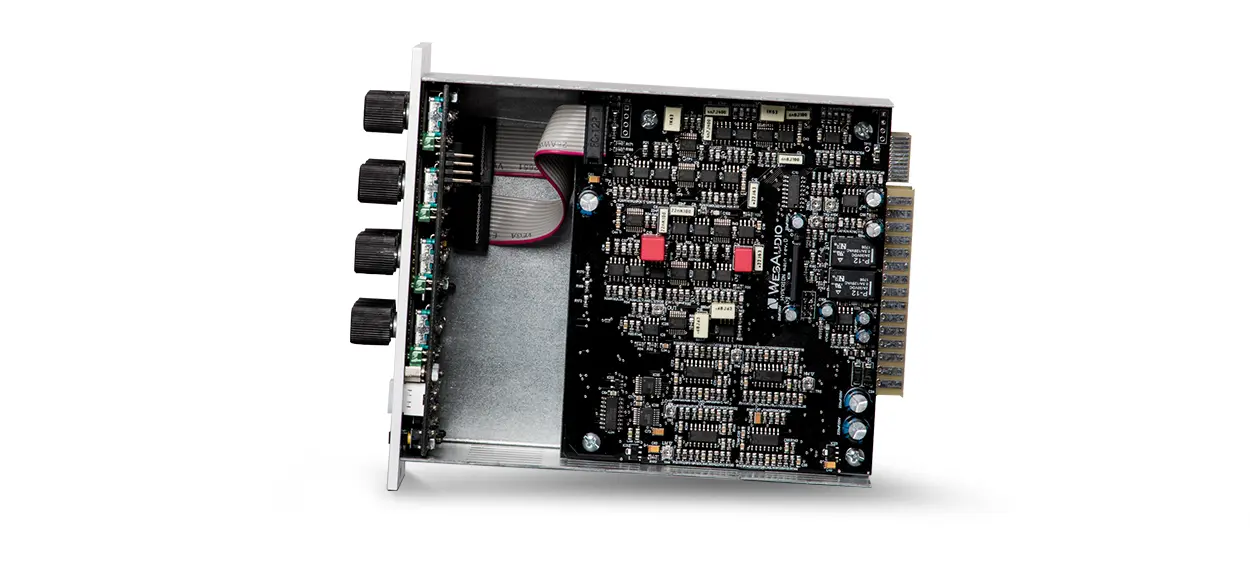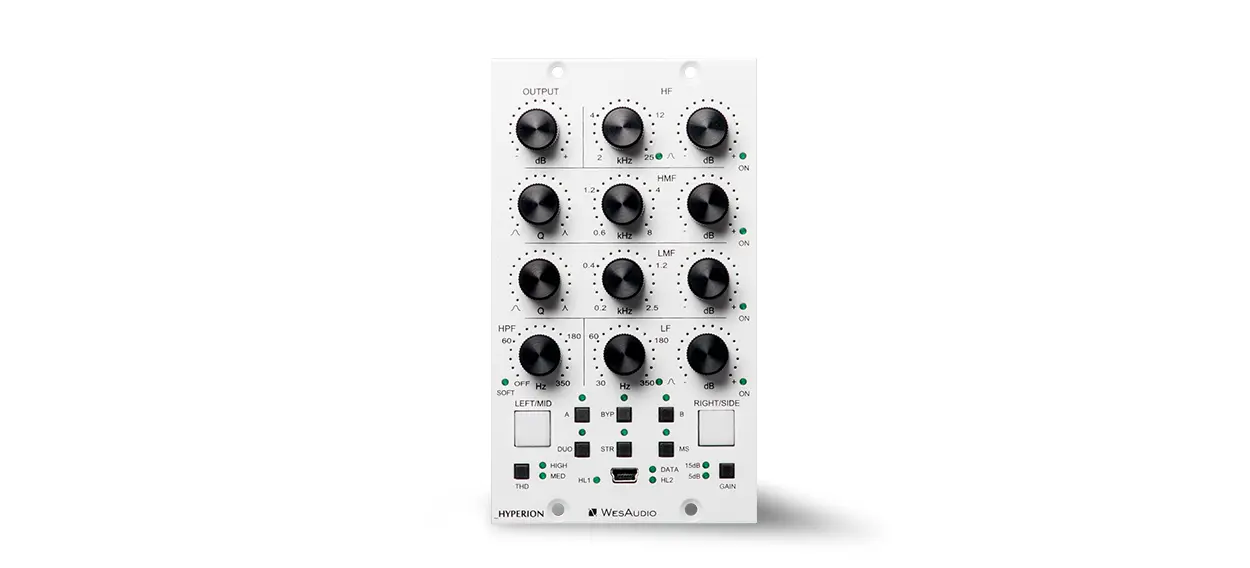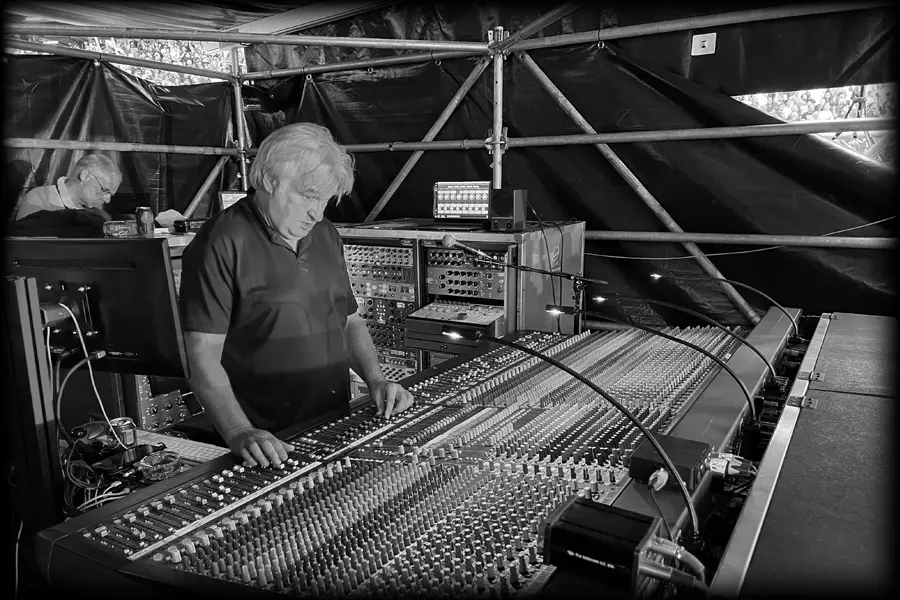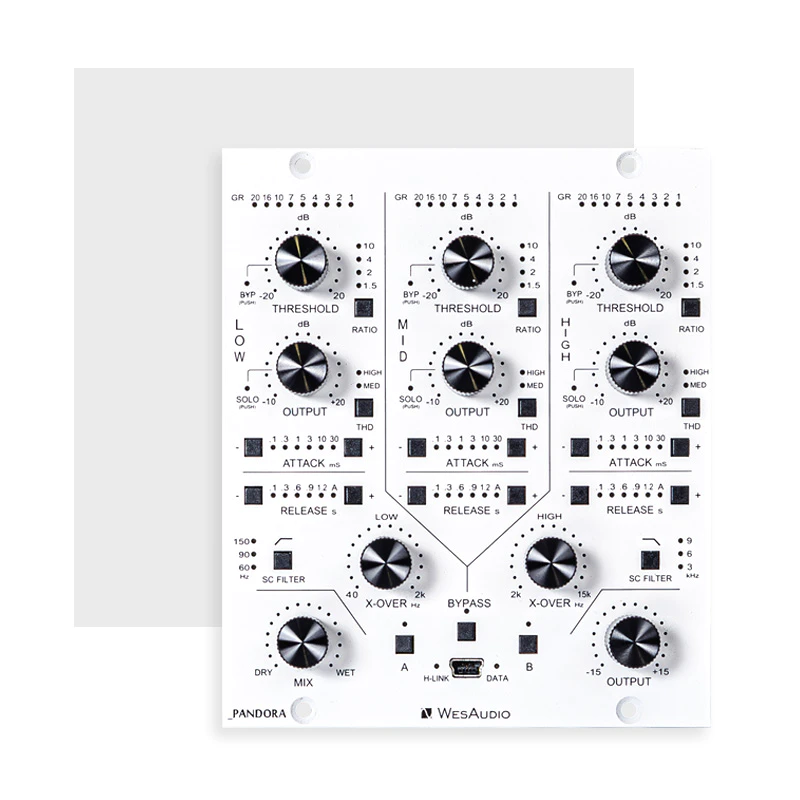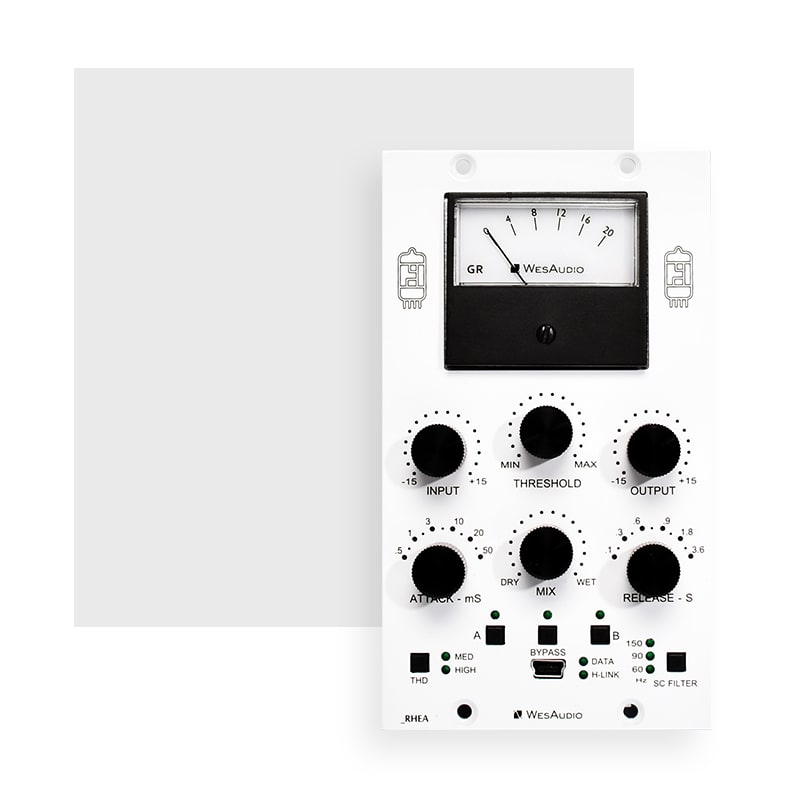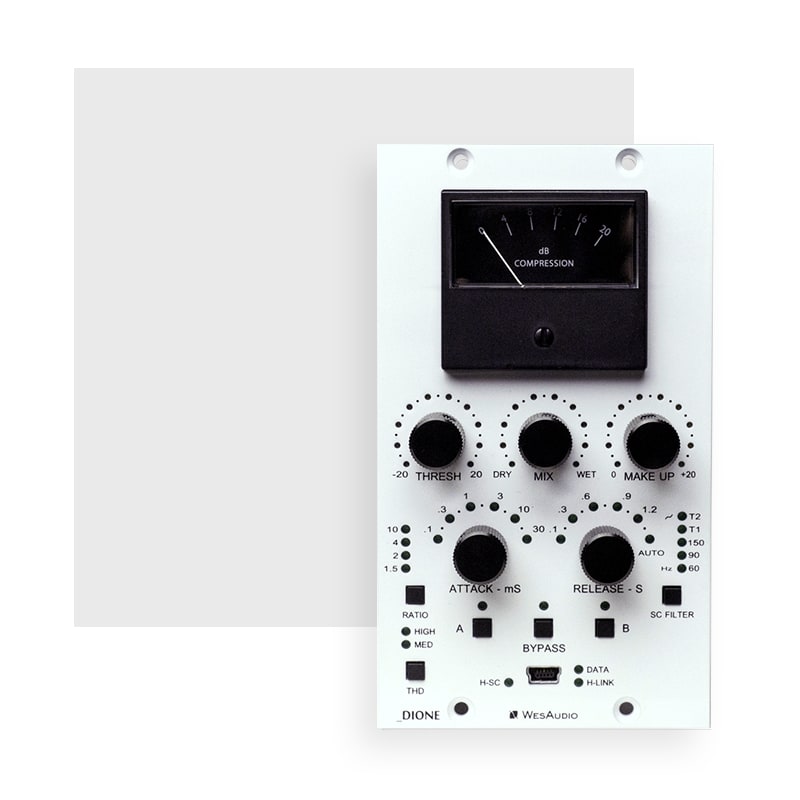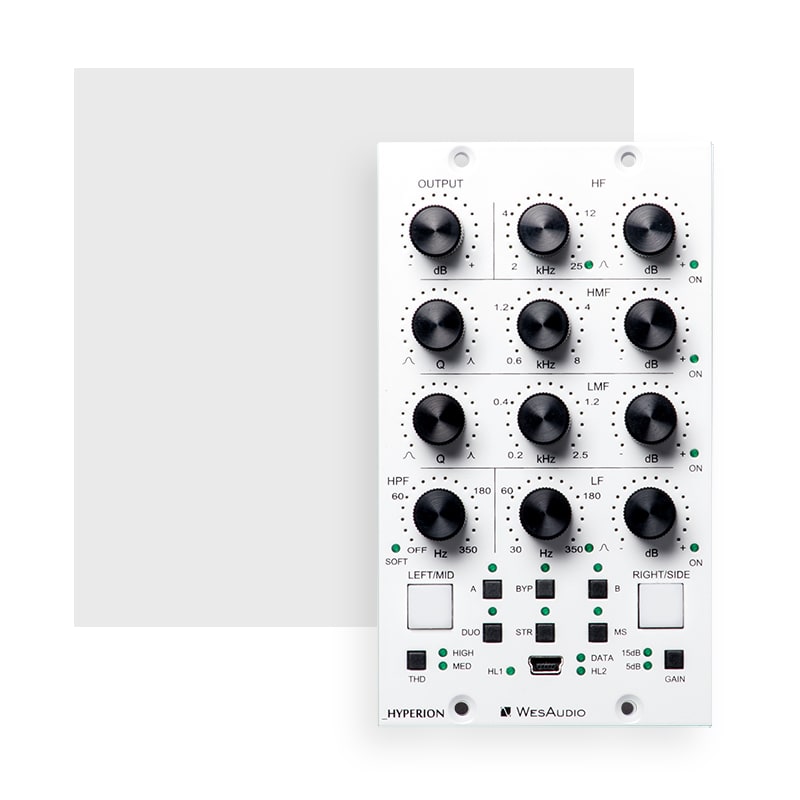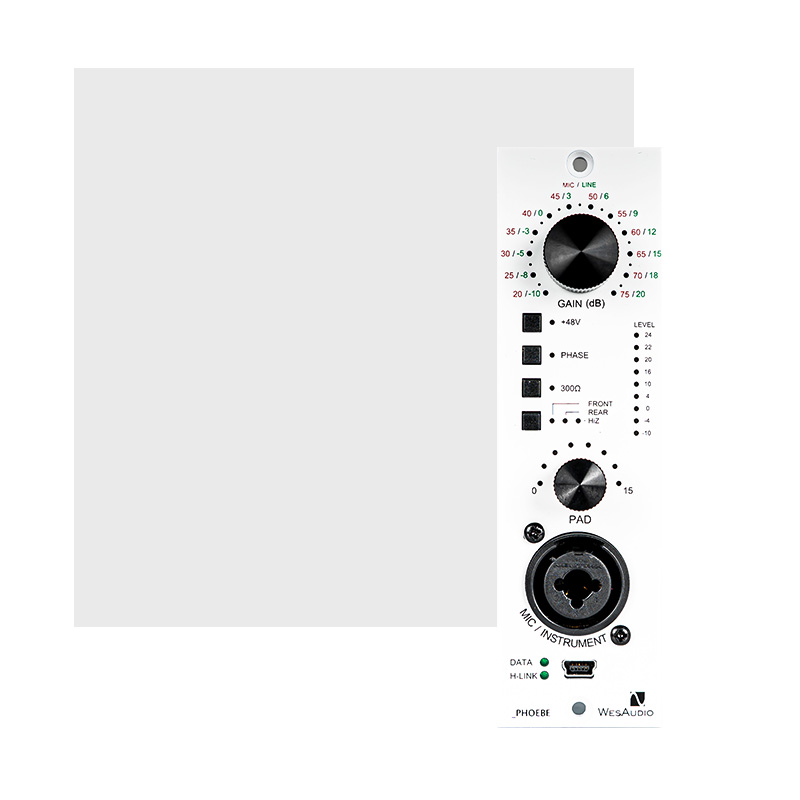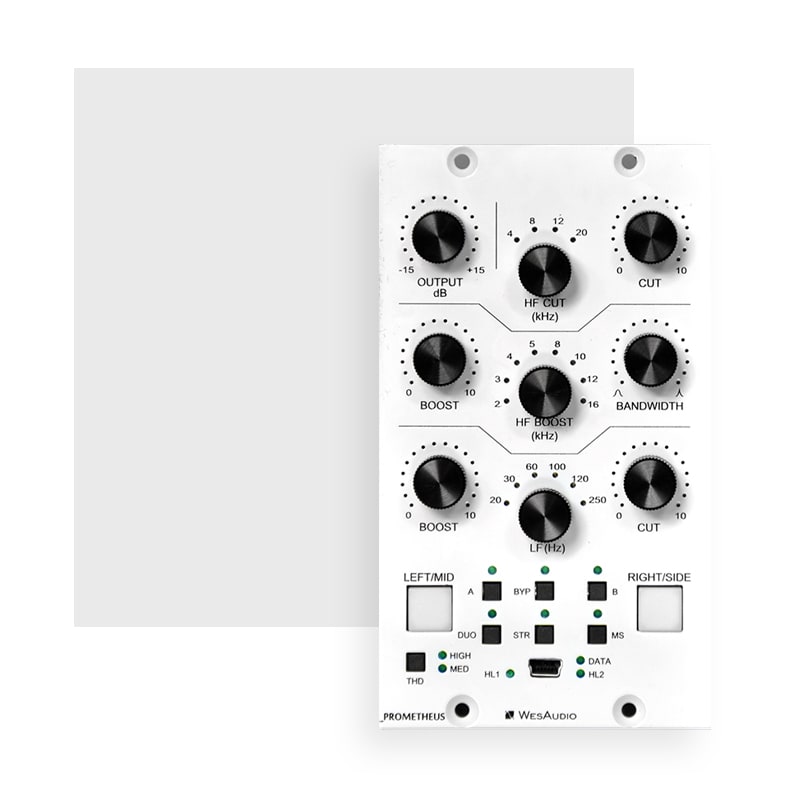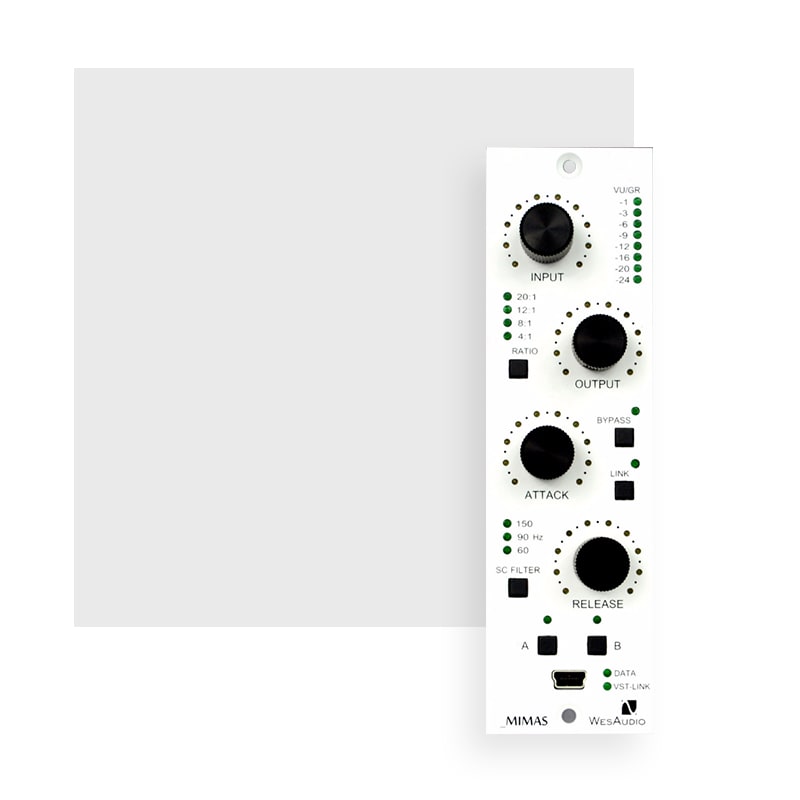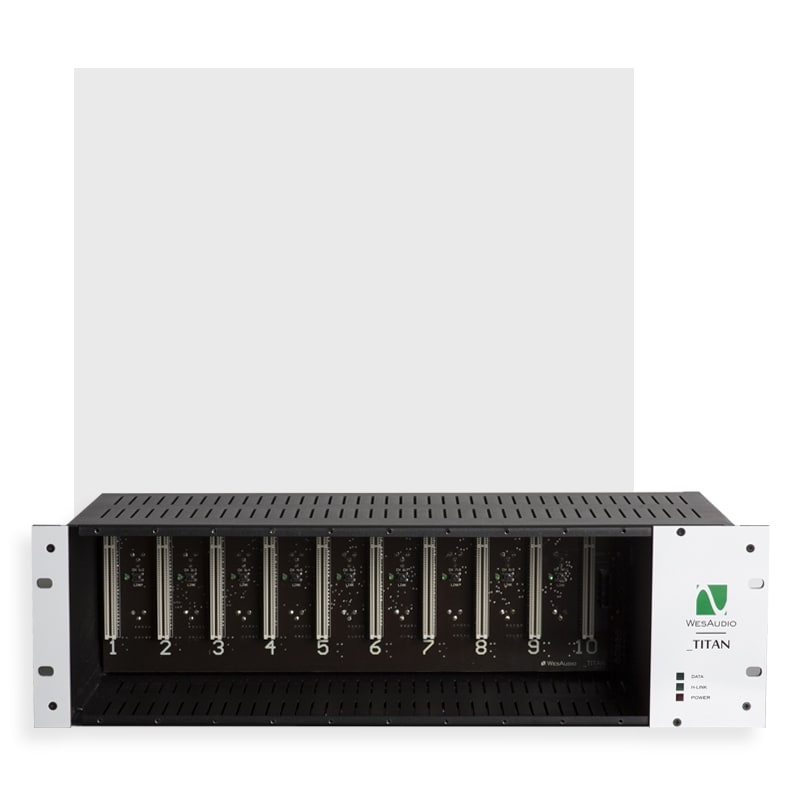_Hyperion
NG500 fully analog parametric equalizer
NG500 fully analog parametric equalizer with digital recall
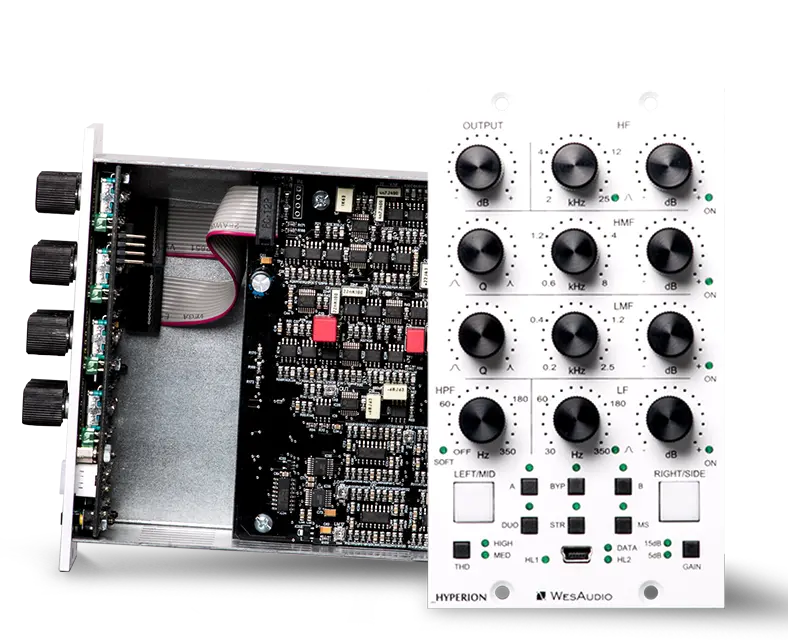
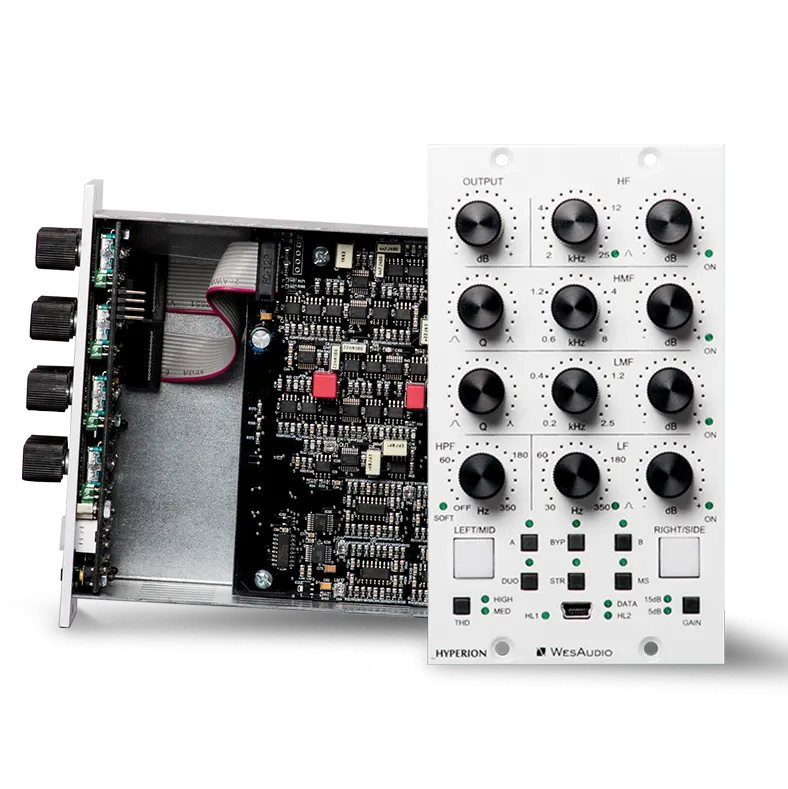
_Hyperion
NG500 Fully Analog Parametric Equalizer with Digital Recall
_Hyperion is a fully analog parametric EQ offering +24dBu of headroom, boasting innovative features not found in other processors on the market. Its advanced design utilizes 15 VCAs per channel, ensuring nearly noiseless parameter adjustments while maintaining a highly musical sound. As part of the NG500 series, the Hyperion integrates total recall functionality, accessible via the front panel USB socket or through the Titan chassis
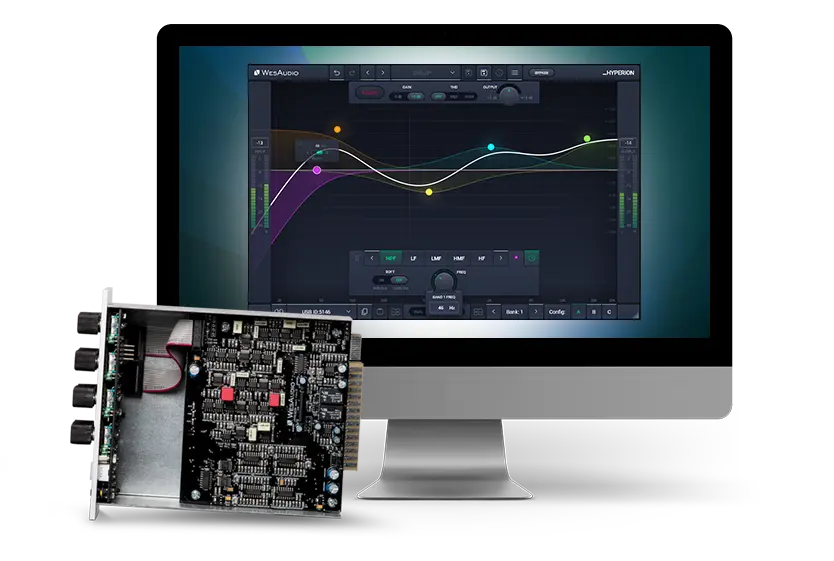
Package contents
| Device | x 1 |
| USB B mini cable | x 1 |
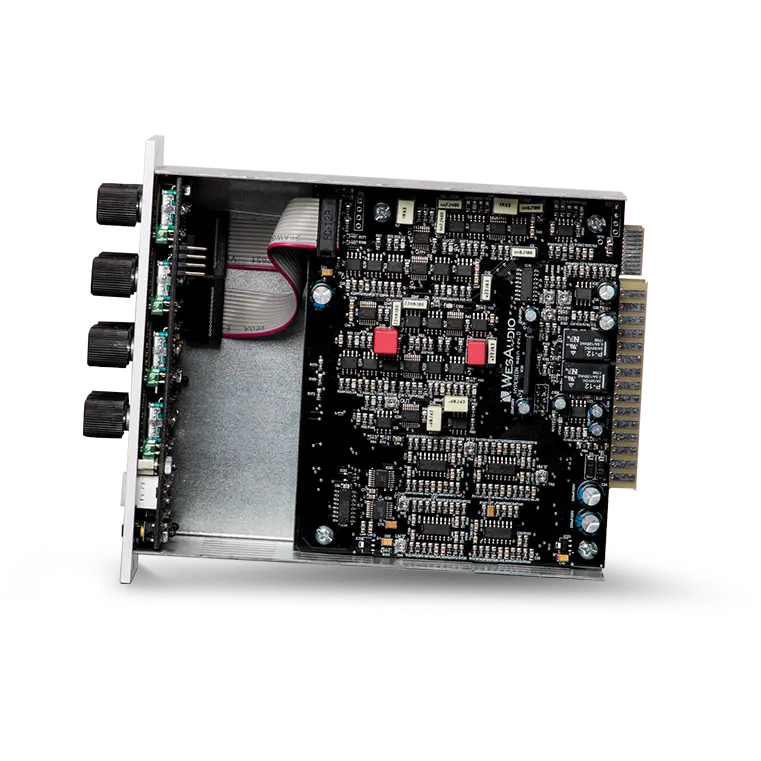
Main Features
_HYPERION
ANALOG SOUND, DIGITAL CONTROL
_HYPERION is a fully analog device with +24 dBu of headroom
Innovative Hardware Circuit
_Hyperion is a fully analog device with +24 dBu of headroom. Its innovative design incorporates 18 VCAs per channel, ensuring precise control and minimal noise for superior audio performance.
4-BAND EQ
A 4-band EQ with selectable gain ranges, offering 5dB or 15dB of boost or cut per band:
High band: 2kHz to 25kHz, selectable between bell or shelf modes.
High-Mid band: 600Hz to 8kHz with full Q control for precise adjustments.
Low-Mid band: 200Hz to 2.5kHz, also featuring full Q control.
Low band: 30Hz to 350Hz, with options for bell or shelf filtering.
Stereo/Dual Mono/Mid-Side Operation Modes
_HYPERION can operate in three distinct modes, including Mid-Side (MS), making it an ideal solution for a wide range of applications.
High Pass Filter
HPF with selectable slopes of 12dB/Oct or 6dB/Oct
Each Band Features its Own Bypass Switch
Each band on the _Hyperion can be bypassed independently, making it easier than ever to experiment with new sounds and compare adjustments quickly.
THD – Add Color to Your Mixes
Total Harmonic Distortion (THD), allows you to introduce analog warmth and saturation to your signal, adding a beautiful richness and musical character that enhances the overall sound quality.
Instant Recall with Flexible DAW/Live Plug-In Control
Stereo plugin: Handles all modes of operation – Stereo, Dual Mono, and Mid-Side.
Mono plugin: Two separate instances can connect to the same hardware, allowing independent channel management.
IN/OUT metering: Includes clip detection for precise monitoring.
Flexible parametric EQ GUI: Designed for intuitive control and visual feedback.
Plugin formats: Available in AAX, AAX DSP, VST3, VST2, and AU for broad compatibility.
Main Features Summary:
Other Features:
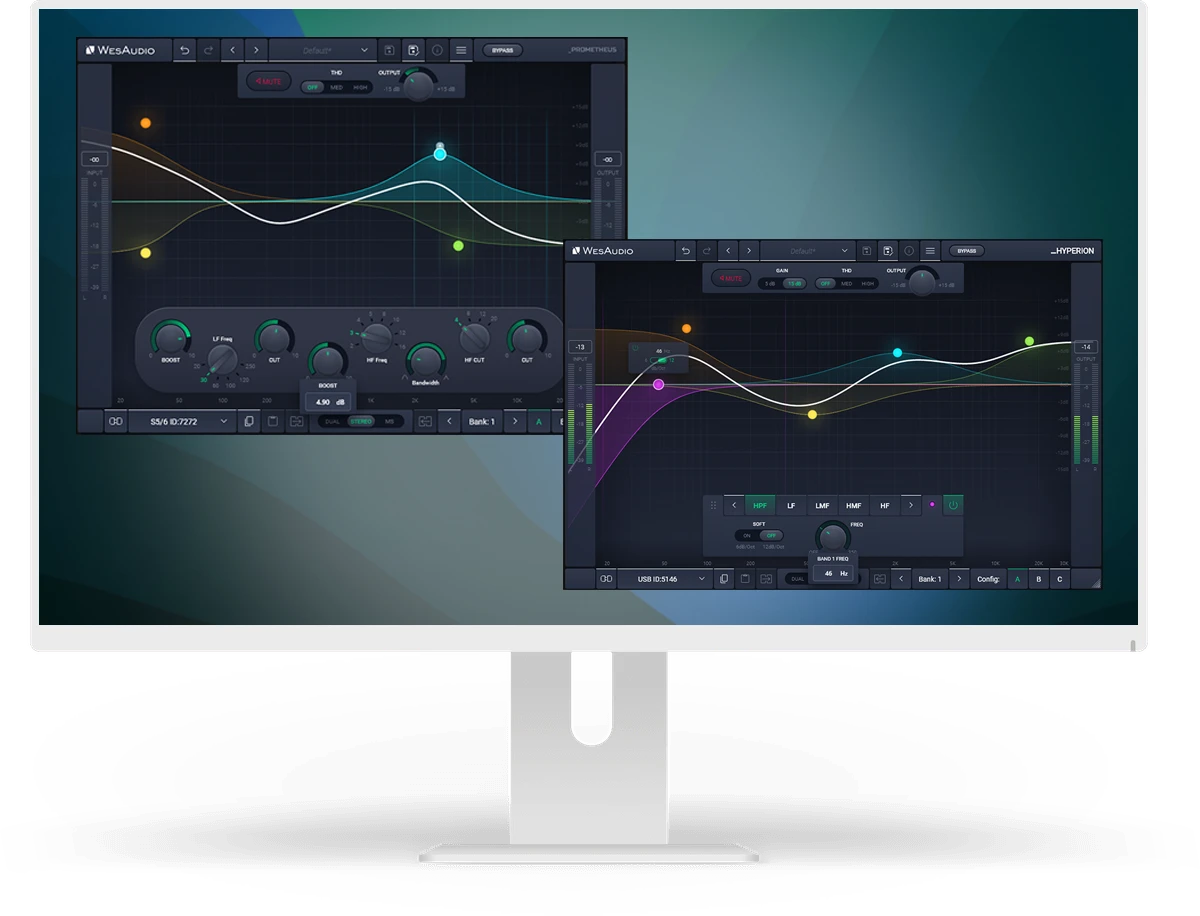
APP FOR MAC AND PC
Digital control features for fully analog units.
Specification
_Hyperion specification
| Frequency response | 10Hz-150kHz (-2dB) |
| THD+N all bands gain “0” | 0.03% (1kHz,0dBu) |
| THD+N +15dB band boost | <0.15% (1kHz,0dBu) |
| Input impedance | 10kohm |
| Output impedance | < 100ohm |
| Max signal level | +24dBu |
| Crosstalk | < -100dB |
| THD (MID switch) | 1% |
| THD (HIGH switch) | 2.5% |
| Power consumption | 150mA per rail |
| Unit dimensions | 76x133x158 mm |
| Box dimensions | 105x162x234 mm |
| Unit weight | 0,7 kg |
| Box weight | 0.9 kg |
| Warranty | 2 years |
Unit needs to warm up for about 5 minutes before usage as its temperature
may affect some internal variables – like frequencies of each band, and very slightly gain and Q settings.
Each band can boost or cut in configurable gain mode (It affects also OUTPUT control):
15dB boost or cut in 0.25 dB steps,
5dB boost or cut in 0.083 dB steps,
Each frequency control has predefined amount of steps in logarithmic scale:
HF frequency – 256 steps,
HMF frequency – 256 steps,
LMF frequency – 256 steps,
LF frequency – 200 steps,
HPF frequency – 128 steps.
User Manual
Download _Hyperion User Manual
_HYPERION VIDEO STORIES
Watch the product video
FAQ
Frequently Asked Questions
There is no need to uninstall the WesAudio application before installing a new release. The update process will seamlessly overwrite the existing version.
To uninstall the WesAudio application, please follow the instructions below.
MacOS:
The WesAudio installation package includes a dedicated uninstaller.
Simply locate and run the WesAudio Uninstaller to remove the application from your system.
Windows:
-
Click Start on the taskbar.
-
Open Settings.
-
Select Applications from the left-side menu.
-
ClickInstalled applications.
-
In the search bar, type “WesAudio”.
-
Click the three dots on the right side.
-
Select Uninstall and follow the on-screen instructions.
If the module doesn’t react to any changes to the knobs on the front panel, the first necessary step is to rewrite firmware into the flash memory (Factory reset procedure re-writes firmware into internal flash memory – it doesn’t affect anyhow unit configuration). To proceed with factory reset, please follow below steps:
- Connect unit either:
- Through front panel USB socket,
- Or keep the unit in ng500 chassis – _TITAN, but please note that chassis has to be connected to the PC/MAC either via USB or Ethernet cable.
- POWER OFF your 500 series chassis.
- Depends on the product please press following front panel control:
- _MIMAS – RATIO button,
- _DIONE – RATIO button,
- _RHEA – THD button,
- _PROMETHEUS – HIGH CUT encoder (top-right encoder),
- _HYPERION – LMF GAIN encoder,
- _CALYPSO – MENU encoder,
- _PANDORA – HIGH SC FILTER (right button).
- While keeping this control (button/encoder) pressed, POWER ON your 500 series chassis.
- LEDs should present a strange pattern.
- Now open GConManager:
- WIN: C:/Program Files (x86)/WesAudio/GConManager.exe
- MAC: /Applications/WesAudio/GConManager.app
- Or click on the WesAudio “Tray” icon, and select “Open GConManager”
- Go to _UPGRADE application.
- Hit start!
If the module doesn’t react to any changes to the knobs on the front panel, the first necessary step is to rewrite firmware into the flash memory (Factory reset procedure re-writes firmware into internal flash memory – it doesn’t affect anyhow unit configuration). To proceed with factory reset, please follow below steps:
- Connect the unit to either USB or Ethernet.
- POWER OFF your unit.
- Depends on the product please press following front panel control:
- ngBusComp – far left Ratio on Channel 1 (Ratio “-”),
- _TITAN – any LINK button between slot connectors,
- ngTubeEQ – THD encoder on Channel 1,
- ngTubeComp – Saturation encoder on Channel 1,
- ng76 – “IN MODE” button,
- ngLEVELER – use a small screwdriver and press button available on the rear panel via a small hole in the chassis.
- While keeping this control (button/encoder) pressed, POWER ON your unit.
- LEDs should present a strange pattern.
- Now open GConManager:
- WIN: C:/Program Files (x86)/WesAudio/GConManager.exe
- MAC: /Applications/WesAudio/GConManager.app
- Or click on the WesAudio “Tray” icon, and select “Open GConManager”
- Go to _UPGRADE application.
- Hit start!
This is a very common issue and in most cases the root cause lies in the connection of the unit and audio interface. If that happens it should be checked if audio interface input isn’t connected to the chassis input and if audio interface output isn’t connected to chassis output. As this initially would seem to be entirely wrong and shouldn’t work at all, as all our units implement “True Bypass” via relays, the unit will pass a signal when the bypass is engaged. The reason for that is that the relay is in fact hard wiring input to the output, and thus the unit will pass the signal, as it doesn’t go through any active circuit of the unit.
This is actually how it is supposed to work, so after the plug-in instance is created, please use a small triangle button which usually is on the bottom side of the plug-in and select proper HW ID from the drop down menu. If the drop down menu doesn’t list any hardware units, please check Your connectivity and other possible root causes in this FAQ.
This is a wide topic, and there may be at least several root causes, but there are few things that should be checked. However, the first and most important thing is to double check that GConManager doesn’t list this device in the _CONFIG app. If this is the case, it means that WesAudio unit can’t connect on the OS level, and some of the below steps may help:
- First of all double check if module connection is properly executed, this procedure is described here.
- USB specification indicates that USB 2.0 works up to 5 meters. This is however not entirely true, as it strongly depends on the peripherals that unit is connected to. Even if our modules are USB 2.0 compatible, your USB port could support USB 3.0 – USB is a backward compatible protocol, so it may be that USB 3.0 cable length limit should be considered which is 2 meters. We would recommend having a USB cable up to 2 meters to remove those limitations from the equation.
- USB HUB is very common root cause to those problems, if module can’t connect via HUB – just for the sake of the test, it is mandatory to connect unit directly to PC/MAC to verify if the problem isn’t caused by it.
- Please note any system warnings attached to “WesAudio Tray Icon”.
As USB controllers have limited capacity it could be a reason for random unit disconnection. Usually, it happens when a lot of USB devices are plugged into the PC/MAC. The usual behavior would be that the unit works normally, and after reboot it doesn’t, but it strongly depends on the OS implementation so exact reaction could be a little bit different. If this is suspected, just for the test, it would be good to disconnect most of the devices from the USB ports, reboot PC/MAC and double check the connectivity from stability point of view. If it leads to the conclusion that this is the root cause of the problem, we would recommend using a decent USB hub, and ideally a TB/USB dock station which tends to offload a lot of responsibilities from our PC/MAC.
If the unit was working fine, and suddenly it couldn’t connect (it is not visible in the GConManager _CONFIG app) that could lead to the conclusion that some devices were added to our USB line, and we could have problems with the USB controller inside PC/MAC. In that case please check the description in the above “Unit disconnects by itself”.
GConManager in Admin mode enables special functionalities which are used during WesAudio units calibration.
Starting from GCon 15, Admin mode can be activated through the GCon Manager app:
- Open the GCon Manager app.
- Navigate to Settings.
- Click the padlock icon to unlock the settings.
- Check the Admin Mode box to enable it.
Alternatively, Admin mode can be activated by following these instructions:
OSX:
- Please open terminal.
- Copy-Paste following command:
open /Applications/WesAudio/GConManager.app --args --admin
WINDOWS:
- Go to “START” and open “Command Line”.
- copy paste this command:
"c:\Program Files (x86)\WesAudio\GConManager.exe" --admin

